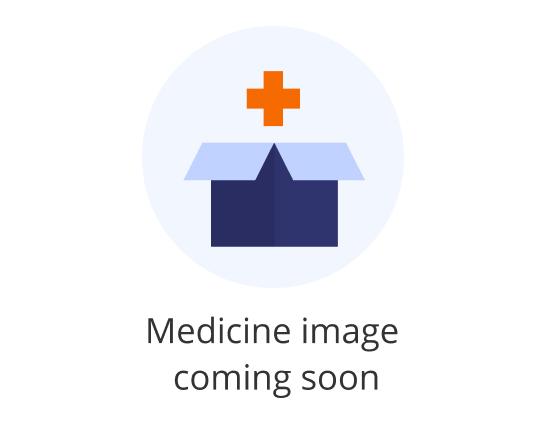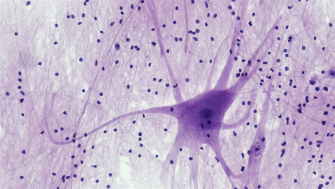Alzheimer’s treatments in the Netherlands: What is (not yet) available? [2024]
Last updated: 04 December 2024
![Alzheimer’s treatments in the Netherlands: What is (not yet) available? [2024]](https://everyone.org/media/magefan_blog/pexels-rollz-19890782.jpg)
You can legally access new medicines, even if they are not approved in your country.
Learn howAt this moment, there are about 195.000 patients in the Netherlands affected by dementia or Alzheimer's disease 1. If you or a loved one are among them, you're probably wondering what are the treatments available in the Netherlands. Below, we'll give you an overview of the standard medicines for Alzheimer's used by Dutch doctors.
You may not yet be wondering whether some newer treatments are available outside of the Netherlands. But we'll also give you an overview of them, because there are ways you can get them, if you need to.
Standard Alzheimer's medicines in the Netherlands
How your condition will be treated largely depends on the type of dementia you're dealing with, as well as the stage of the disease. As of October 2024, there are four medicines for Alzheimer's available in the Netherlands. They are galantamine, rivastigmine, donepezil, and memantine.
Here's a bit about each of them.
Galantamine
Galantamine is used to treat Alzheimer's disease, as well as Parkinson's dementia and Lewy body dementia. This medicine is prescribed in the early stages of Alzheimer's.
Galantamine is a medication used to treat Alzheimer's disease by improving memory and thinking abilities. It works by increasing a natural substance (acetylcholine) in the brain, but it does not cure the disease or stop mental decline in the long term.
Rivastigmine
Similar to galantamine, rivastigmine is also prescribed to treat early Alzheimer's disease, Parkinson's dementia, and Lewy body dementia.
Rivastigmine works by increasing the levels of acetylcholine in the brain. Acetylcholine is involved in enabling communication between nerve cells. RIvastigmine is intended to improve the symptoms of Alzheimer's. However, just like galantamine, it it not a cure for the disease and does not stop its progression.
Donepezil
Donepezil is another medicine used to treat early Alzheimer's disease, Parkinson's dementia and Lewy body dementia.
The way donepezil works is by slowing the breakdown of acetylcholine in the brain. This may help improve attention, memory, and the ability to engage in daily activities. However, donepezil is also not a cure for Alzheimer's, nor a way to stop its progression.
Memantine
Memantine is prescribed for the treatment of moderate to severe Alzheimer's disease.
It works by protecting nerve cells from the damaging effect of glutamate. Glutamate is a chemical which sends messages between nerve cells and the brain. Nerve cells affected by Alzheimer's tend to make too much glutamate, which can cause additional damage.
Memantine is not a cure for Alzheimer's and it unfortunately doesn't work for everyone. Many patients only experience a modest effect from the medicine.
Treating Alzheimer's without medication in the Netherlands
Often, treatment with medicines is only one part of the holistic approach to Alzheimer's treatment in the Netherlands. Next to medicines, patients often benefit from regular physical activity, a healthy diet, sufficient sleep, and mental stimulation.
Alternative treatments for Alzheimer's also exist - e.g. brain stimulation, homeopathy, or cannabis. However, most of these treatments aren't backed by scientific evidence 2.
Alzheimer's medicines that aren't available in the Netherlands yet
What if the medicines you're getting are not working for you? Or your doctor believes there is no available treatment for you in the Netherlands? There are some newly approved Alzheimer's medicines elsewhere in the world that you may be able to discuss with your doctor.
Alzheimer's medicines that slow down disease progression
Over the last 3 years, three new medicines have been introduced. All of them aim to slow down the progression of Alzheimer's disease. These medicines are Aduhelm (aducanumab), Leqembi (lecanemab), and Kisunla (donanemab). Unfortunately, none of them are available in the Netherlands yet. The question is: do they indeed slow down the progression?
Here's a bit about each.
-
Aduhelm (aducanumab)
When it first received accelerated FDA approval in 2021, Aduhelm was the first new treatment for Alzheimer's in decades. And the first to be considered by the FDA as "disease-modifying".
Aduhelm (aducanumab) works by removing beta-amyloid plaques from the brain. In this way, it aims to reduce cognitive and functional decline in people with early Alzheimer's. Initial clinical trial data showed a modest slowing effect on cognitive decline, and a subsequent trial showed no such effect [8].
In 2023, Aduhelm (aducanumab) failed to get EMA approval, and as of 2024 is being discontinued also in the USA 3. The main reason cited by Biogen for discontinuing the medicine is low sales. However, low sales are only a by-product of the unconvincing clinical trial data and the approval of competitor medicines in the meantime 9.
-
Leqembi (lecanemab)
Leqembi (lecanemab) was approved by the FDA In 2022, as a second-generation anti-amyloid therapy. Designed to work in a similar way to Aduhelm - by removing beta-amyloid plaques from the brain - Leqembi demonstarted a somewhat more favourable safety profile according to the studies published by FDA. At the same time, it was reported to reduce cognitive decline by up to 27% 10.
Similar to Aduhelm, Leqembi is also intended for early-stage Alzheimer's only.
Though Leqembi (lecanemab) was iitially rejected by the EMA in July 2024, the decision was subsequently reversed, and in November 2024, the CHM P gave a positive recommendation for approving the medicine in the EU.
In the meantime, lecanemab was approved by the MHRA in the UK, and is now available to patients in the UK 5.
-
Kisunla (donanemab)
Kisunla is the latest, third-generation anti-amyloid therapy for Alzheimer's. It received FDA approval in July 2024 6.
Kisunla (donanemab) attaches itself to the beta-amyloid plaques in the brain and helps the immune system break them down. As such, it also aims to slow down disease progression, similar to Aduhelm and Leqembi. In clinical trials, Kisunla was reported to slow cognitive decline by up to 35% versus placebo 11.
Currently, Kisunla (donanemab) is approved in the UK and is still under evaluation by the EMA, with a decision possibly coming within 2024. In the Netherlands, it takes an average of 294 days for an EMA approved medicine to become available to patients locally 7. Therefore, if donanemab gets EMA approval before the end of 2024, it will probably be available in the Netherlands towards the end of 2025.
How to get the newest Alzheimer's medicines before they're available in the Netherlands?
All the latest treatments for Alzheimer's are intended for the early stage of the disease. Therefore, waiting another year or more for them to be available in the Netherlands may be too long. By that time you or your loved one may have progressed to a later stage of the disease, for which these medicines are not intended.
Luckily, waiting is not your only option. If your doctor is of the opinion that Leqembi or Kisunla can benefit your treatment, they can prescribe them to you. And with a prescription, you have the right to buy and import them from abroad. This procedure is called Named Patient Import. We are experts on this procedure, audited and approved by the IGJ, and we can help you and your doctor make this a smooth process.
Do you want to get lecanemab or donanemab before they're available in the Netherlands? You will first need to consult your treating doctor and get a suitable prescription.
Already have a prescription? Share it with our team, so we can support you with buying the medicine you need right away.
References:
- Medicamenteuze behandeling van de ziekte van Alzheimer. De klinische praktijk in Nederland. Tijdschrift voor gerontologie en geriatrie. Accessed 10 October 2024.
- Behandeling van dementie zonder medicatie. Alzheimer Nederland, Accessed 10 October 2024.
- Aducanumab to Be Discontinued as an Alzheimer's Treatment. Alzheimer's Association, Accessed 10 October 2024.
- Leqembi | European Medicines Agency (EMA). European Medicines Agency, 26 July 2024.
- Lecanemab licensed for adult patients in the early stages of Alzheimer's disease. GOV.UK, 22 August 2024.
- Drug Trials Snapshots: KISUNLA. FDA, 12 August 2024.
- EFPIA Patients W.A.I.T. Indicator 2021 Survey. EFPIA, Accessed 10 October 2024.
- Aducanumab. Accessdata.fda.gov, 7 June 2021.
- Kritz, Fran. What the End of Aduhelm Means for Alzheimer's Drugs. Verywell Health, 8 February 2024.
- What's the difference between Leqembi and Aduhelm? A simple overview. Everyone.org, 3 August 2023.
- Lilly's Kisunla™ (donanemab-azbt) Approved by the FDA for the Treatment of Early Symptomatic Alzheimer's Disease. Eli Lilly Investors, Accessed 14 October 2024.





